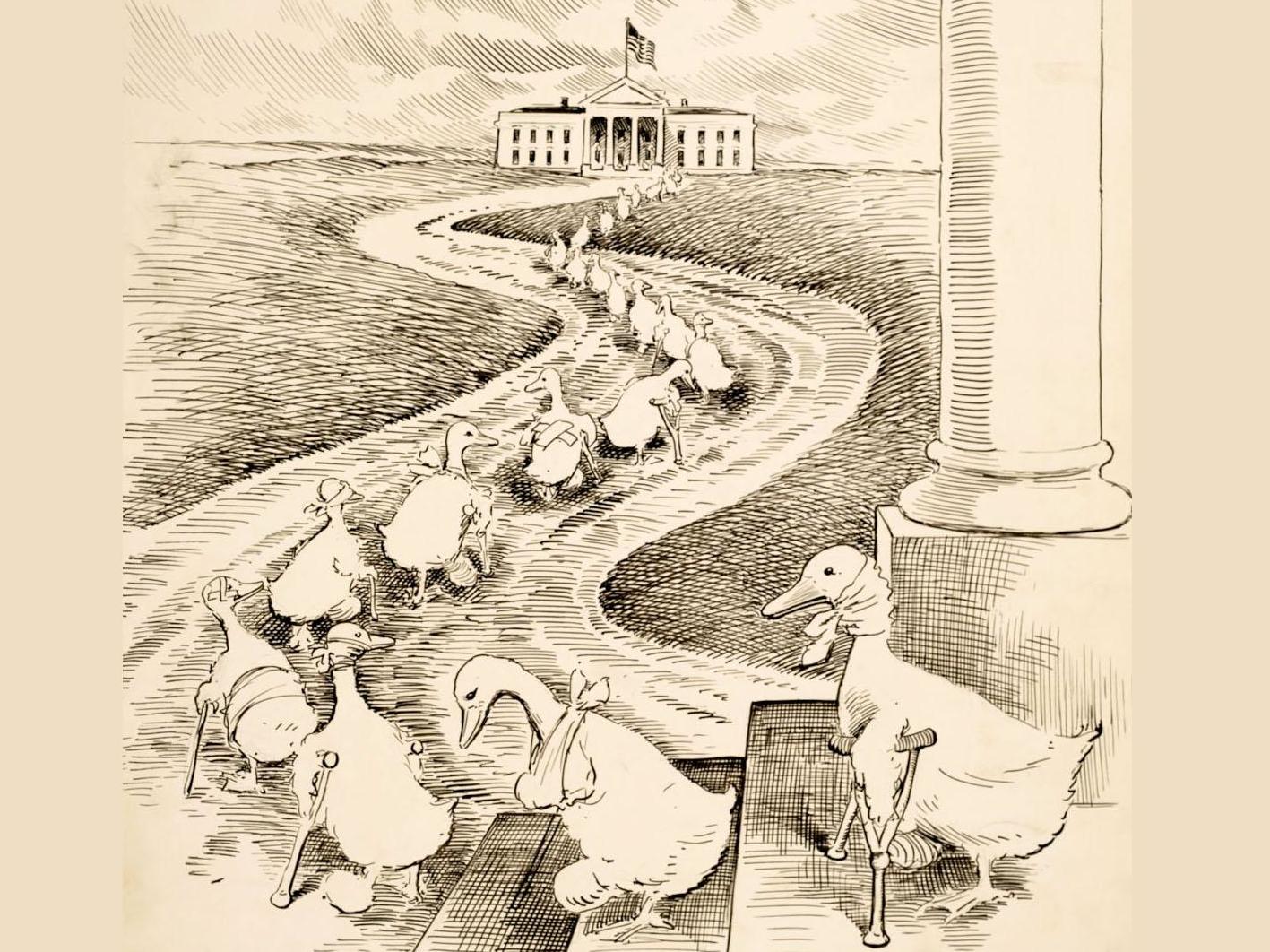What is a lame duck? Theresa May compared to injured water fowl after surviving no-confidence vote
Prime minister to fight on after feathers fly in Tory ballot
Your support helps us to tell the story
From reproductive rights to climate change to Big Tech, The Independent is on the ground when the story is developing. Whether it's investigating the financials of Elon Musk's pro-Trump PAC or producing our latest documentary, 'The A Word', which shines a light on the American women fighting for reproductive rights, we know how important it is to parse out the facts from the messaging.
At such a critical moment in US history, we need reporters on the ground. Your donation allows us to keep sending journalists to speak to both sides of the story.
The Independent is trusted by Americans across the entire political spectrum. And unlike many other quality news outlets, we choose not to lock Americans out of our reporting and analysis with paywalls. We believe quality journalism should be available to everyone, paid for by those who can afford it.
Your support makes all the difference.Despite surviving a vote of no-confidence on her premiership, Theresa May is already being labelled a “lame duck”.
The political columnists, satirists and cartoonists have called Ms May many names since she entered 10 Downing Street in July 2016 but this one has a long history and a particular resonance.
With her unpopular Brexit deal now given a fresh lease of life, here's a guide to waddling into oblivion.
Why is it being said now?
Wednesday's no-confidence ballot was instigated after more than 15 per cent of backbenchers in the Conservative Party‘s 1922 Committee wrote to its chairman, Sir Graham Brady, expressing their disapproval at Ms May's handling of Britain's withdrawal from the EU.
The PM though lives to fight another day, escaping the botched coup attempt diminished but in tact with the backing of 200 Tory MPs, after the rebels could only muster 117 doubters.
The victory, such as it is, grants her a year’s immunity from a repeat ballot, although the comparison to an injured water fowl will be a tough one to shake.
Where does the phrase derive from?
A political cliche of some standing, the label dates back to the London Stock Exchange of the 18th century, where it was used to refer to any stockbroker who had defaulted on their debts. A lame duck is unable to keep up with the flock and is therefore prone to being picked off by foxes, the logic implies.
In politics, it is applied to any leader who is seeing out the end of their term, either because they have declared they have no intention to challenge for office again (perhaps because of retirement), because they are approaching the natural end of their term limit or because they have just lost a re-election bid.
Theresa May telling her party’s MPs on Wednesday she would not contest the next general election, due by 2022, qualifies her as a lame duck PM.
Who else has it been applied to?
There is not necessarily any disgrace in being a lame duck.
Across the pond, Barack Obama amounted to one in the final three months of his second term two years ago, given that his successor had already been determined: Donald Trump waiting on the sidelines to replace him in the White House as president-elect.

Trump himself has already been branded a lame duck by The Atlantic while any number of American presidents, from James Buchanan and William Howard Taft to Theodore Roosevelt have been dismissed accordingly.
While the phrase implies a weakening or loss of authority, being a lame duck can also be oddly liberating.
With the end of their tenure fixed and publicly known, a politician is freed up from the responsibility of having to please everyone with a view to seeking future re-election. Instead, they can deploy their executive power without fear of reprisals.
Theresa May might have been cast into the Westminster duck house missing a few feathers but her surviving the internal referendum on her leadership delivers a mandate to press on with Brexit with renewed confidence.
Until the next crisis erupts next week.

Join our commenting forum
Join thought-provoking conversations, follow other Independent readers and see their replies
Comments